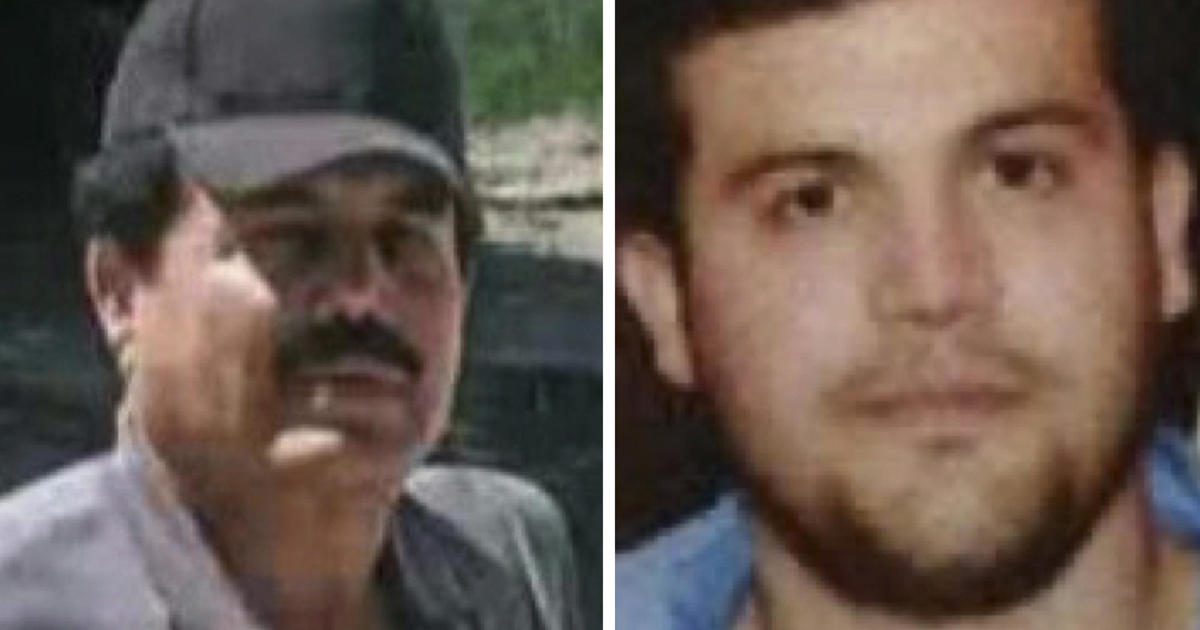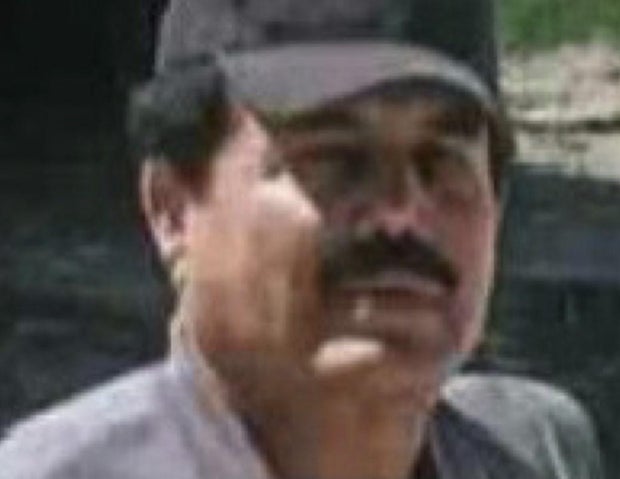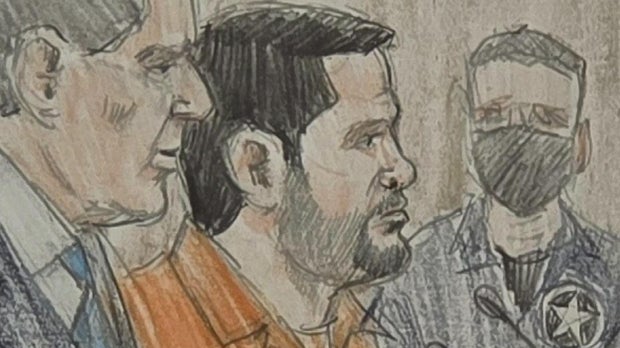The United States managed to arrest Mexico’s most-wanted drug lord, but Mexican prosecutors – and the president – now say they are considering bringing treason charges against those who handed him over.
It’s part of the long, strange trail of Sinaloa cartel leader Ismael “El Mayo” Zambada, who unexpectedly appeared on a flight that landed near El Paso, Texas in July. That private plane flight was arranged by another drug capo who decided to turn himself in.
U.S. officials say Joaquín Guzmán López – a son of imprisoned cartel leader Joaquín “El Chapo” Guzmán – flew to the United States to turn himself in, but abducted Zambada before leaving Mexico and forced him onto the plane.
But rather than thanking the United States for nabbing Zambada – whose cartel has spread violence and terror across Mexico for decades – Mexican prosecutors are considering bringing treason charges against Guzmán or anyone else involved in the plot.
U.S. Department of State via AP
Mexico’s Attorney General’s Office said late Sunday it had opened a criminal investigation “for the possible crimes of illegal flight, illicit use of airports, immigration and customs violations, kidnapping, treason, and any other crimes that may apply.”
The odd response to the capture of a drug trafficker who had a $15 million U.S. reward on his head is based on an article in Mexico’s penal code that lays out prison sentences of up to 40 years in prison for treason.
The article includes the traditional definitions of treason – attacking Mexico on behalf of a foreign power, or serving a foreign army – but also states treason is committed “by those who illegally abduct a person in Mexico in order to hand them over to authorities of another country.”
That clause was apparently motivated by the abduction of a Mexican doctor wanted for allegedly participating in the 1985 torture and killing of Drug Enforcement Administration agent Kiki Camarena.
The doctor, Humberto Machaín, was kidnapped in Mexico in 1990 and handed over to U.S. authorities, angering Mexico.
President Andrés Manuel López Obrador has long viewed any U.S. intervention as an affront, and has refused to confront Mexico’s drug cartels. In fact, he said Monday he questioned the U.S. policy of detaining drug cartel leaders, asking “why don’t they change that policy?”
Asked about the Zambada case – and the possible involvement of a senior politician from López Obrador’s Morena party in negotiations with the drug lords – the president depicted the whole issue as a possible U.S. plot to smear him by tying his party to drug lords.
“In the United States, there are some groups that don’t want to understand that things have changed, and who want to continue intervening, undermining, trying to dominate,” López Obrador said.
“Kidnapped and brought to the U.S. forcibly”
Over the weekend, Zambada’s lawyer released a letter from his client saying he was ambushed and kidnapped when he thought he was going to meet the governor of the northern state of Sinaloa, then was taken against his will to the United States.
In the letter obtained by CBS News, Zambada wrote there were “many inaccurate reports” and he will provide the “true facts” from that day. He said he wanted everyone to know from the outset he did not turn himself in, have an agreement, or come voluntarily.
“To the contrary, I was kidnapped and brought to the U.S. forcibly and against my will,” he wrote.
In the two-page letter, Zambada said Guzmán López asked him to attend a meeting July 25 with local politicians, including Sinaloa Gov. Rubén Rocha Moya, from the ruling Morena party.
But the letter said he was instead led into a room where he was knocked down, a hood was placed over his head, he was handcuffed, and then taken in a pickup truck to a landing strip where he was forced into a private plane that finally took him and Guzmán López to U.S. soil.
The letter raised questions about links between drug traffickers and some politicians in Sinaloa, the Pacific coast state that is the home base of the Sinaloa cartel, but Gov. Richa Moya denied any links to the criminals and said he was not in Sinaloa that day. After the arrests, he had said he was in Los Angeles.
Zambada ended the letter calling on the governments of the United States and Mexico to be “transparent” about his abduction, subsequent disappearances and death.
“I also call on the people of Sinaloa to use restraint and maintain peace in our State,” Zambada wrote. “Nothing can be solved by violence. We have been down that road before, and everyone loses.”
The Attorney General’s Office said it had taken over the case from Sinaloa state prosecutors. Regarding the governor’s possible involvement, the office said it had “contacted him, to obtain all applicable information,” but apparently had not called him to testify.
In early August, Zambada, 76, made his second appearance in U.S. federal court in Texas after being taken into U.S. custody the week before.
Guzmán López apparently had been in negotiations with U.S. authorities for a long time about possibly turning himself in. Guzmán López, 38, has pleaded not guilty to drug trafficking and other charges in federal court in Chicago.
Provided to CBS
U.S. officials said they had almost no warning when Guzmán López’s plane landed at an airport near El Paso and weren’t expecting Zambada to be aboard the craft. Both men were arrested and remain jailed. They are charged in the U.S. with various drug crimes.
Ken Salazar, the U.S. ambassador to Mexico, said the plane took off from Sinaloa and filed no flight plan. He stressed the pilot wasn’t American, nor was the plane.
The implication is that Guzmán López intended to turn himself in, and brought Zambada with him to procure more favorable treatment, but his motives remain unclear.
Zambada was considered the Sinaloa cartel’s strategist and was thought to be more involved in its day-to-day operations than his better-known and flashier boss, “El Chapo,” who was sentenced to life in prison in the U.S. in 2019.
Zambada’s faction of the Sinaloa cartel has been engaged in fierce fighting with another faction led by the sons of Guzmán.


